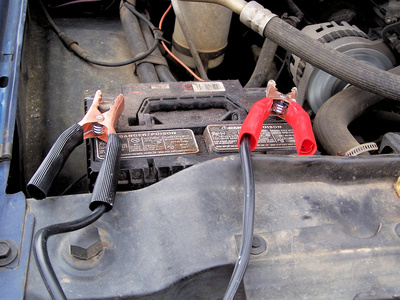
Keeping up on your engine maintenance schedule can prolong the life of your engine. Foregoing routine maintenance is asking for the common engine problems, such as the engine not starting or stalling. These common problems can be resolved or avoided with a few simple tools and a couple hours. This is time and effort spent that in the end will save you lost time and unnecessary costs.
Most common engine starting problems can be resolved with routine maintenance. An engine that will not crank is an indication of a problem in the electrical starting circuit. Corrosion on the battery terminals can limit voltage reaching the starting solenoid. The starter will not operate properly without the correct voltage. Verify battery terminals on the battery and starter are tight and free of corrosion, oil and dirt.
An engine that cranks but will not start is not getting enough fuel or air into the cylinder. A clogged fuel or air filter can cause this. The engine might also be injecting fuel at the wrong time because the engine timing is off. The filters are used to remove dirt and contaminants from the fuel and air. If the filters were not in the system, particles of dirt and debris could clog or damage major components such as fuel injectors and cylinder components. Proper engine timing is important because the electronic control unit monitors the position of the camshaft to determine the proper time to inject fuel and send the spark signal. If the timing is off, the engine might not start because these two critical functions are performed at the wrong time.
If the engine stalls from time to time, this could be a sign the air filter or fuel filter is partially clogged, limiting flow but not stopping it entirely. Engine timing could also be varying because of problems with the crankshaft and camshaft timing sensors. Check the wires to the sensors to verify they are in good condition. Also verify the sensor is properly installed.
An engine that runs rough can be caused by broken wires to the spark plugs, injectors, timing sensors and electronic control unit. Check the wire harness connection to make sure they are secure. Engine timing slightly off can cause the engine to run rough. The fuel is being injected into the cylinder, and the spark is igniting the fuel air mixture, but this is being done at the incorrect time.
Engine overheating is a common problem that can be easily fixed. The engine will overheat because it is not getting proper coolant flow. Coolant flow can be limited or reduced by low coolant level, stuck thermostat or a bad water (coolant) pump. To reduce the occurrence of overheating problems, routinely verify the coolant is at the proper level. If coolant is at the proper level and the engine still overheats, this could be a sign the thermostat is stuck closed or the water pump has failed.